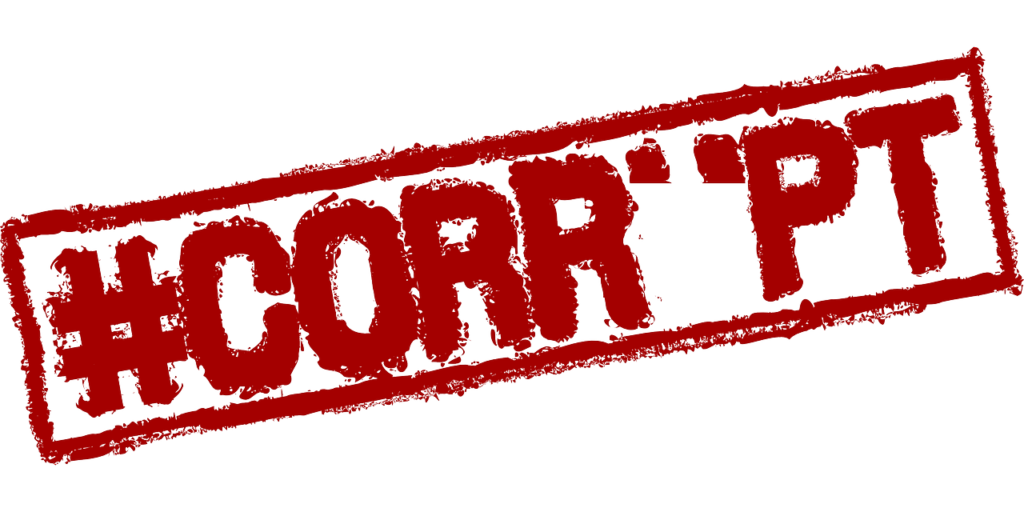According to this article, corruption undermines the principles of fairness, integrity, and transparency in both public and private sectors. It erodes the public’s trust in institutions, leading to a breakdown of societal cohesion. The economic ramifications of corruption extend beyond financial losses, hindering sustainable development and discouraging foreign investment. Individuals involved in corrupt practices often exploit their positions for personal enrichment, perpetuating a cycle of inequality.
Efforts to eradicate corruption require a multi-faceted approach, encompassing legal reforms, institutional strengthening, and a culture of accountability. This is not only jeopardizes the rule of law but also poses a significant threat to democratic governance by compromising the electoral process and fostering a climate of impunity.
Addressing corruption necessitates collective action on both national and international levels, with collaboration between governments, civil society, and the private sector.

Introduction
A persistent societal evil that cuts across national and cultural barriers, corruption continues to pose a serious threat to the progress and stability of governments all over the world. Corruption is defined as the misuse of authority for one’s own benefit. It can take many different forms, such as fraud, nepotism, embezzlement, and bribery. This article explores the causes and its wide-ranging effects, and the continuous international efforts to address this persistent problem.
Causes of Corruption:
- Lack of Transparency:
- Weak Institutions:
- Poverty and Inequality:
- Lack of Accountability:
Lack of Transparency:
Transparency in company operations and government organizations is one of the main causes of corruption’s. Corruption thrives in environments where information is not easily accessible to the public.
Weak Institutions:
This is more likely to occur in countries with weak or ineffective institutions. When there are inadequate checks and balances in place, people in positions of authority can abuse their influence for personal benefit without worrying about the repercussions.

Poverty and Inequality:
Widespread poverty and economic inequality provide an ideal environment. People in difficult financial situations could turn to dishonest means of surviving, while the wealthy take advantage of their privileges to gain even more wealth.
Lack of Accountability:
A lack of accountability in the public and private spheres makes people less likely to abstain from corrupt practices. The rule of law may be undermined by a culture of impunity.
Consequences of Corruption:
- Economic Implications:
- Social Injustice:
- Erosion of Trust:
- Undermining Democracy:
Economic Implications:
Corruption prevents economic growth by taking funds away from infrastructure and public services. It warps the workings of the market, deterring investment and impeding just competition.

Social Injustice:
Corruption exacerbates social disparity, benefiting a small group at the expense of the majority and disproportionately affecting underprivileged communities, potentially leading to heightened social unrest.
Erosion of Trust:
When pervasive, trust in institutions is undermined. The social compact between the governed and those in authority breaks broken when citizens lose faith in their governments.
Undermining Democracy:
Since jeopardizes election integrity and threatens the fundamental democratic values of accountability and transparency, it is a serious challenge to democratic institutions.
Global Efforts to Combat Corruption:
- International Conventions:
- Civil Society Engagement:
- Whistleblower Protection:
- Technology and Transparency:
International Conventions:
Organizations like the United Nations and the Organization for Economic Cooperation and Development (OECD) have established conventions and guidelines worldwide to support anti-corruption initiatives.
Civil Society Engagement:
In order to keep corporations and governments responsible, civil society is essential. Advocacy groups, NGOs, and the media strive to bring corrupt practices to light and promote reform.
Whistleblower Protection:
Strong whistleblower protection laws make it easier for people to come out with knowledge about unscrupulous activity without worrying about facing consequences.
Technology and Transparency:
Using technology to conduct financial transactions and public procurement, such as creating online platforms, can decrease potential and increase transparency.

Conclusion:
A thorough and coordinated effort to combat corruption must take place globally. Nations can endeavor to construct societies that are more just, equal, and impervious to the damaging consequences of addressing its underlying causes, fostering openness, and encouraging responsibility. The world can only hope to address the widespread problems caused and open the door for sustainable growth by working together.

